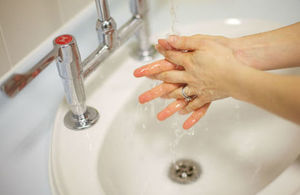E. coli O157 infection can cause a
range of symptoms, from mild diarrhoea to bloody diarrhoea with severe abdominal
pain. On rare occasions, it can also cause more serious medical conditions and
can be caught by eating contaminated food or by direct contact with animals
with the bacteria. It can also be passed from an infected individual to another
person if hand and toilet hygiene is poor.
Dr
Isabel Oliver, director of PHE's field epidemiology service, said: "At
this stage, we are not ruling out other food items as a potential source."
PHE was first
alerted to the outbreak at the end of June. Dr Oliver said people could help
protect themselves from possible infection by washing their hands before eating
and handling food and by thoroughly washing vegetables and salads that they
were preparing to eat.
E. coli O157 is found in the gut and faeces
of many animals, particularly cattle, and can contaminate food and water. Outbreaks
of E. coli O157 are rare compared
with other food-borne diseases.
Avoiding E.
coli
O157 infection
§ Wash
hands thoroughly after using the toilet, before and after handling food, and
after handling animals
§ Remove
any loose soil before storing vegetables and salads
§ Wash all
vegetables and fruits that will be eaten raw
§ Store and
prepare raw meat and unwashed vegetables away from ready-to-eat foods
§ Do not
prepare raw vegetables with utensils that have also been used for raw meat
§ Cook all
minced meat products, such as burgers and meatballs, thoroughly
§ People
who have been ill should not prepare food for others for at least 48 hours
after they have recovered
Source - PHE & BBC
